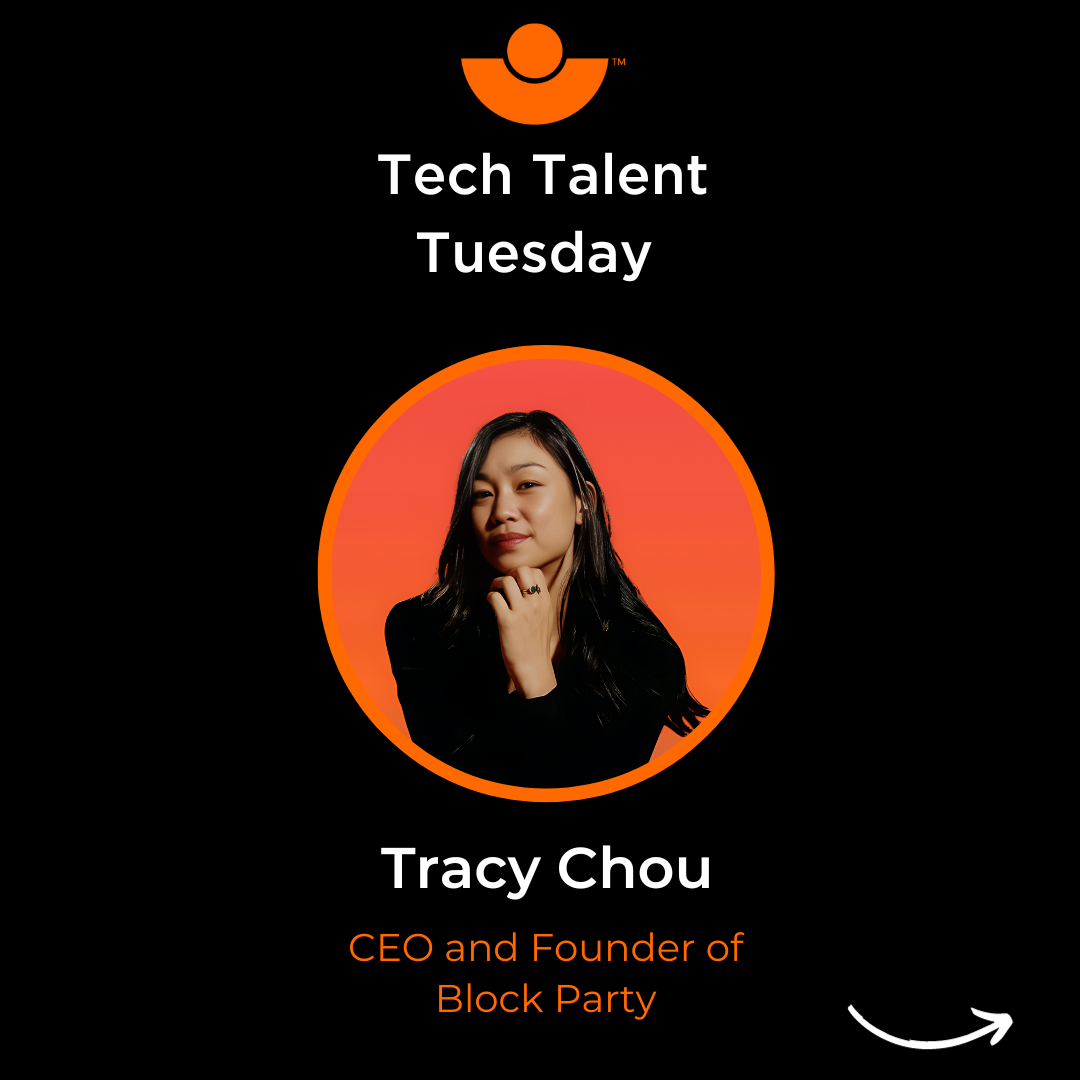Tech Talent Tuesday - Tracy Chou
28 Nov, 20235 minutes
Tracy Chou is more than just a software engineer; she's a catalyst for change and an advocate for diversity and safety within technology-related fields.
Early Life and Educational Journey
Born in 1987, Tracy's journey into the world of technology was influenced by her upbringing in Silicon Valley. The daughter of computer scientists who immigrated from Taiwan, Tracy's exposure to the tech world began early. She attended St. Francis High School in Mountain View before matriculating at Stanford University. At Stanford, she studied computer science with a specialization in machine learning and artificial intelligence, and she also undertook internships at Google and Facebook. Despite her formidable talents, Tracy initially grappled with confidence issues, feeling out of place among her male counterparts. However, her resilience and determination drove her to excel in her coursework, eventually earning a master's degree in computer science.
Career Trajectory, Advocacy, and Impact
Tracy's professional journey showcases a mix of determination and innovation. Initially aiming for a doctorate in quantitative marketing research rather than a career as a software engineer, her path took an unexpected turn in 2010 when she was approached by Quora, which was just a small start-up at the time. The company persuaded her to join as an engineer, and in joining, Tracy became Quora’s 4th ever employee. Her impact in the start-up world expanded further with her involvement at Pinterest, where she joined in October 2011 as one of its first 15 employees during the early stages of the pinboard company's growth.
Tracy truly catapulted into the limelight when she began amplifying the issue of gender imbalance in tech companies. Tracy Chou's journey into addressing gender dynamics in the tech industry began at Quora, where she observed a notable gender imbalance among top contributors (9 out of the top 10 writers on the site were men), with one female user leaving due to being repeatedly asked misogynistic questions. To combat this, Tracy developed the "block" feature, aiming to curb such behavior on the platform. This pivotal moment fueled her belief that platform design significantly influences user behavior, setting the tone for her career.
A couple of years later, Tracy's curiosity about gender representation in tech intensified when she attended the Grace Hopper Celebration of Women in Computing in 2013. She took proactive steps to gather data about the issue, penning a blog post urging tech companies to disclose their workforce statistics. Her efforts led to the creation of a repository on GitHub for sharing responses. The repository gathered data on over 50 firms within a week, and by January 2016, it had statistics on 250 firms. Tracy’s focus on this issue played a major role in pressuring industry giants like Google, Facebook, and Microsoft to release diversity reports, pushing the industry toward more inclusive practices.
Tracy identified multiple factors contributing to the gender gap in tech, highlighting limited role models, networking opportunities, and pervasive condescension toward women in Silicon Valley. Tracy's dedication led to her co-founding Project Include in 2016, an advocacy group focusing on fostering diversity and inclusivity within the tech sector, founded with the belief that more heterogeneous workforces build safer products. Her impactful work has earned her many accolades, including being named among Time's 12 Women of the Year in 2022 for her enduring commitment to inclusivity in tech.
Championing a Safer Online Realm with Block Party
Today, Tracy is the founder and CEO of Block Party, a company dedicated to reshaping the internet's landscape by combating online harassment and empowering users. It is certainly one of Tracy’s most impactful contributions to date. Her personal experiences with online abuse fueled a deep-seated determination to create a platform shielding individuals from the harmful effects of cyber harassment. Reflecting on the challenges, Tracy emphasizes: "I can hardly express what it feels like to endure the repercussions of an unregulated internet, allowing any individual or group to disrupt your digital presence with impunity. It's infuriating, especially when it disproportionately affects marginalized communities striving to voice opinions and experiences."
Drawing from her technical expertise acquired at major platforms like Facebook, Pinterest, and Quora, Tracy leveraged her insights to design anti-harassment protections and algorithms while critically examining the lack of diverse perspectives in tech development. The platform filters out potentially abusive content from accounts likely owned by trolls, including new accounts, those without profile photos, or those with fewer than 100 followers. Users have fine-grained controls to customize their protection settings, with a premium version offering even stricter filters. Block Party doesn't erase trolls' tweets but hides them from users in a designated "lockout folder," minimizing exposure to harmful content. Currently, Privacy Party beta (the newest version of Block Party) supports X, Facebook, LinkedIn, Instagram, and Venmo.
Tracy Chou’s impact transcends beyond coding and engineering; it is a testament to the transformative power of individuals committed to leveraging technology for societal betterment. Through her work at Block Party and her unrelenting advocacy, Tracy has sparked a pivotal conversation about the intersections of technology, inclusivity, and compassion.
Make sure you are following MCS to see our weekly Tech Talent blog alongside numerous job opportunities across several sectors!



